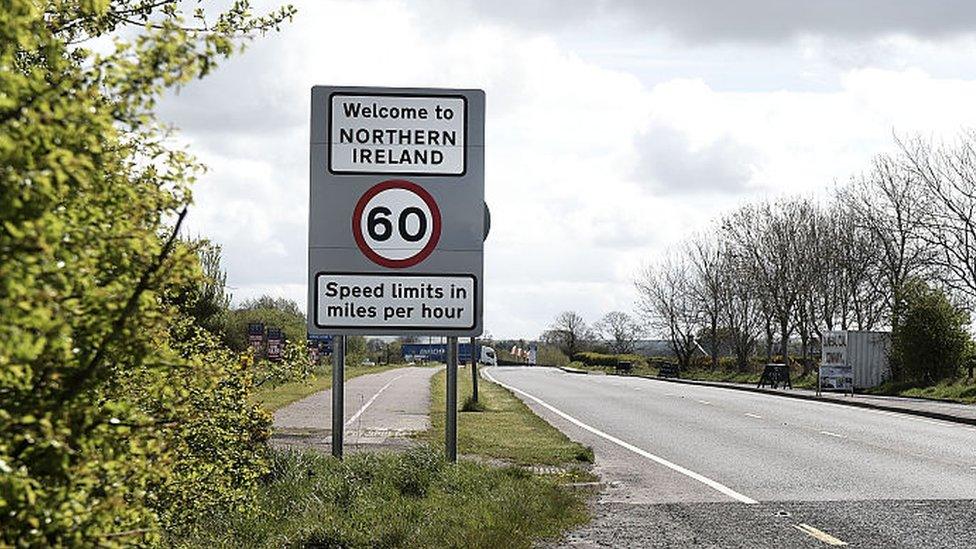Northern Ireland parties set to return to government
- Published
- comments
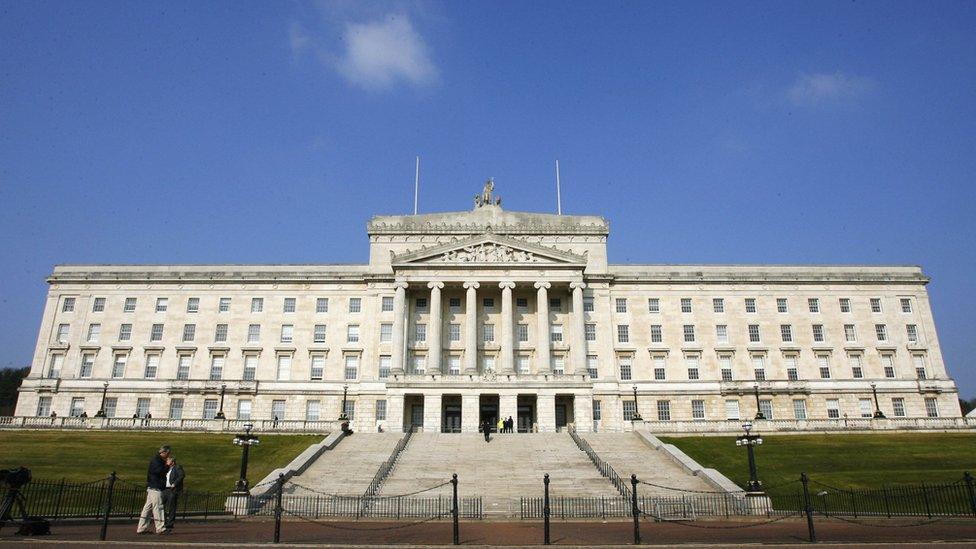
Stormont is the home of the Northern Ireland government, which was dissolved after an argument between the two parties in power
A new deal agreed in Northern Ireland could see politicians returning to working together in the Northern Ireland Assembly.
For the past two years the Democratic Unionist Party (DUP) - one of the biggest parties - has refused to be part of the government at Stormont.
It said this was in protest against trade arrangements brought in following Brexit.
But after talks with the UK government, some changes have been agreed to how trade will work between and UK and Northern Ireland going forward.
The government is expected to publish details of the deal on Wednesday before passing the legislation in Parliament on Thursday.
This could then lead to a recall of the Northern Ireland Assembly by the end of the week.
Why has the DUP been unhappy about the trade arrangements after Brexit?
Back in 2022 the BBC's Ireland correspondent Emma Vardy explained some of the issues with the Northern Ireland protocol
After Brexit an agreement called the Northern Ireland protocol was brought in to allow goods to go freely between Northern Ireland (in the UK) and the Republic of Ireland (in the European Union).
The border is a sensitive issue because of Northern Ireland's violent past and many politicians did not want new checkpoints there.
This meant that instead, check were done when goods arrived in Northern Ireland from the rest of the UK (England, Scotland, Wales).
Unionists are those who want Northern Ireland to remain part of the United Kingdom, while Nationalists want it to be part of the Republic of Ireland.
But this move is unpopular with unionist politicians, who said it treated Northern Ireland differently from the rest of the UK, and created a trade border between Northern Ireland and Great Britain.
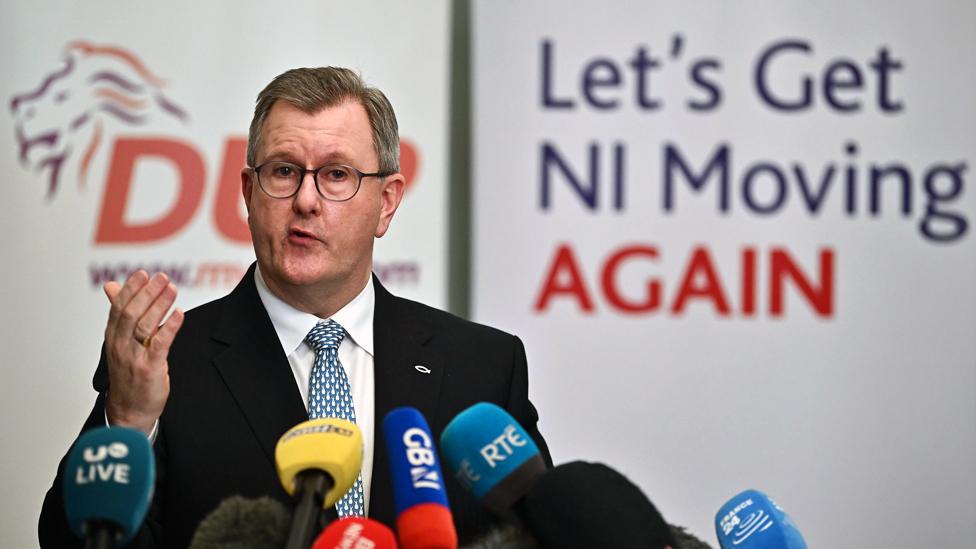
Democratic Unionist Party (DUP) leader Sir Jeffrey Donaldson said a new deal has been done with the UK goverment
The DUP's leader Sir Jeffrey Donaldson said that now a new deal has been agreed with Westminster which would "remove checks on goods moving within the UK and remaining in NI, and end NI blindly following EU laws".
I believe that what we've been able to achieve delivers a good outcome for Northern Ireland because there have been wins to strengthen the union.
He added: "Are these proposals perfect, have we achieved everything that we wanted to achieve? No we haven't, I will be honest with people about what we have been able to deliver.
"I believe there is now a route to have the devolved government restored."
Not everyone is happy about this new deal being agreed, or with the DUP's plans to return to government, with some protesters coming to the meeting holding placards calling them "sell-outs".
Chris Heaton-Harris MP, Secretary of State for Northern Ireland, said the move is "a welcome and significant step".
He continued: "Sir Jeffrey Donaldson has said this is subject to the binding commitments between the Democratic Unionist Party and the UK government - I can confirm that we will stick to this agreement."
Sinn Féin President Mary Lou McDonald says she is glad that Northern Ireland is about to have its government restored.
She said: "It has been a long time coming, but we are very pleased."
"We are conscious that there is a huge amount of work to be done," she added.
What does a return to government mean for Northern Ireland?
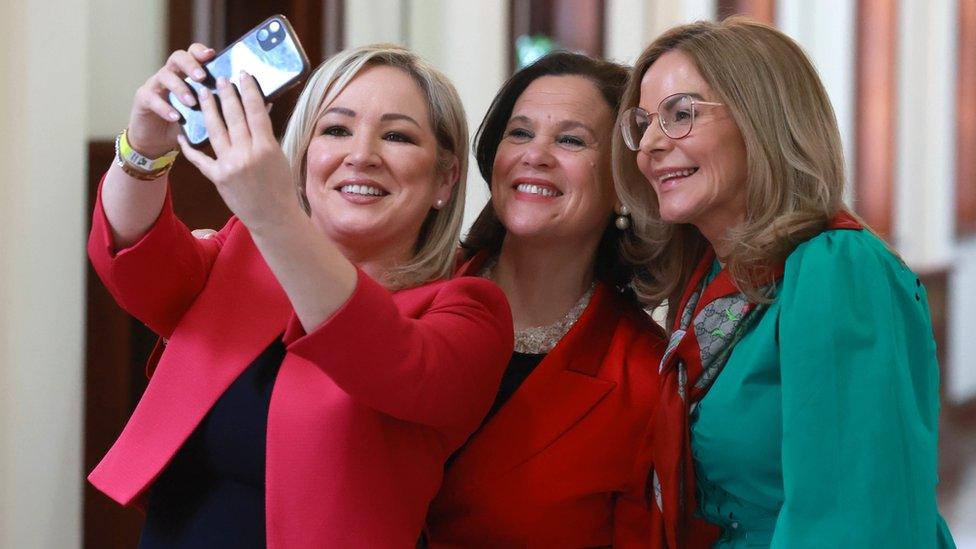
Nationalist party Sinn Féin became the biggest party at the last election - but weren't able to take up their seats in government due the the DUP's absence
The DUP refusing to join the government in Stormont, meant that no other parties could take part either.
This is due to how Northern Ireland's government is run; both the largest nationalist party and unionist party must agree to govern together.
This is called power-sharing and is part of the Good Friday Agreement, which helped to bring to an end a period of fighting and conflict in the region called the Troubles.
Sinn Féin's Michelle O'Neill will become Northern Ireland's first-ever nationalist first minister after power-sharing is restored at Stormont.
- Published18 May 2022
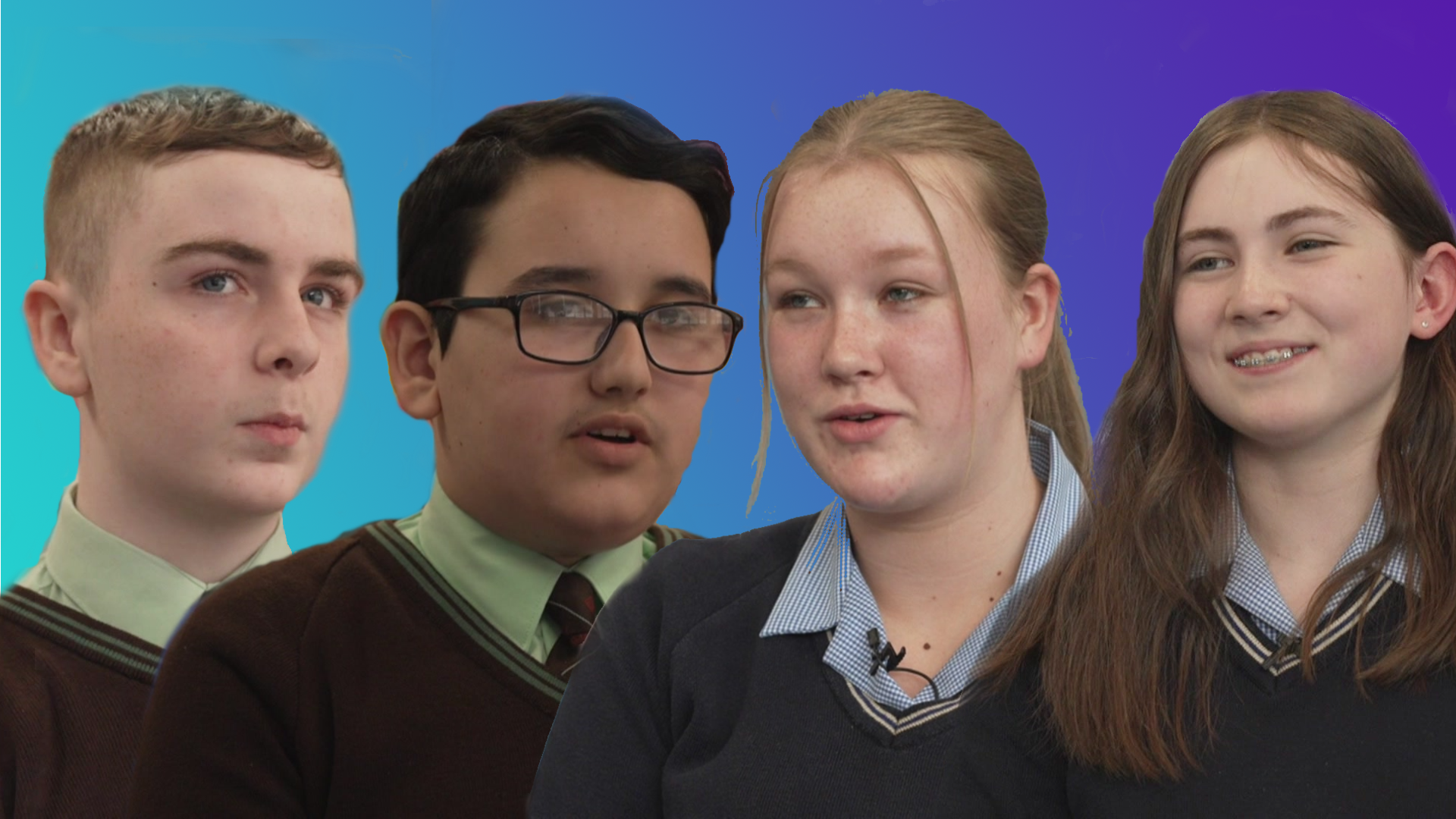
- Published15 June 2022
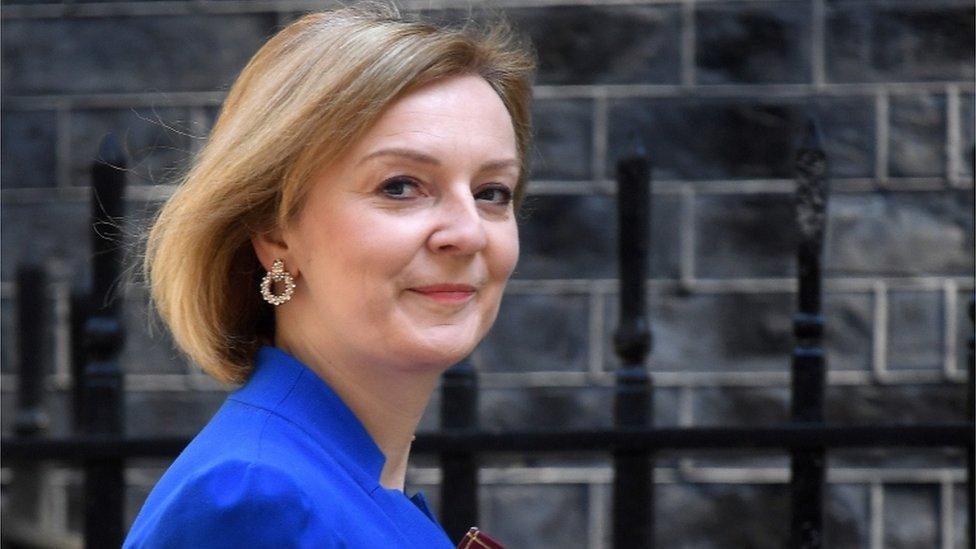
- Published3 May 2021
